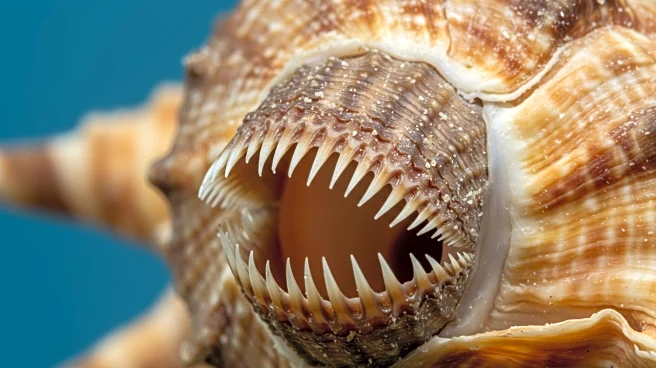What's Happening?
A recent study published in Science has unveiled the biological process that makes chiton teeth exceptionally strong, surpassing materials used in industrial applications. Researchers, including David Kisailus from the University of California, have identified iron-binding proteins in chitons that contribute to the formation of durable dental structures. These teeth are produced at room temperature with nanoscale precision, offering insights into potential advancements in material science. The study involved collaboration with Japanese researchers to analyze chitons from the northwest United States and Japan, revealing the role of the RTMP1 protein in iron deposition on chiton teeth.
Why It's Important?
The findings from this study could revolutionize material science by providing a blueprint for creating advanced materials with applications in various industries, including dental and surgical implants, protective coatings, and more. The ability to replicate the natural process of chiton teeth formation could lead to environmentally friendly and sustainable manufacturing methods. This research highlights the potential for biomimicry in developing new technologies, offering a pathway to more efficient and sustainable production processes.
What's Next?
Further research into chiton teeth could lead to breakthroughs in additive manufacturing and synthesis methods, potentially impacting industries such as battery production, fuel cell catalysts, and semiconductors. The study suggests that understanding the spatial and temporal synthesis of chiton teeth could inform new approaches to 3D printing and other advanced manufacturing techniques.
Beyond the Headlines
The study underscores the importance of learning from nature to develop sustainable technologies. By mimicking biological processes, researchers can create materials that are not only durable but also environmentally friendly, reducing reliance on harmful industrial practices.











